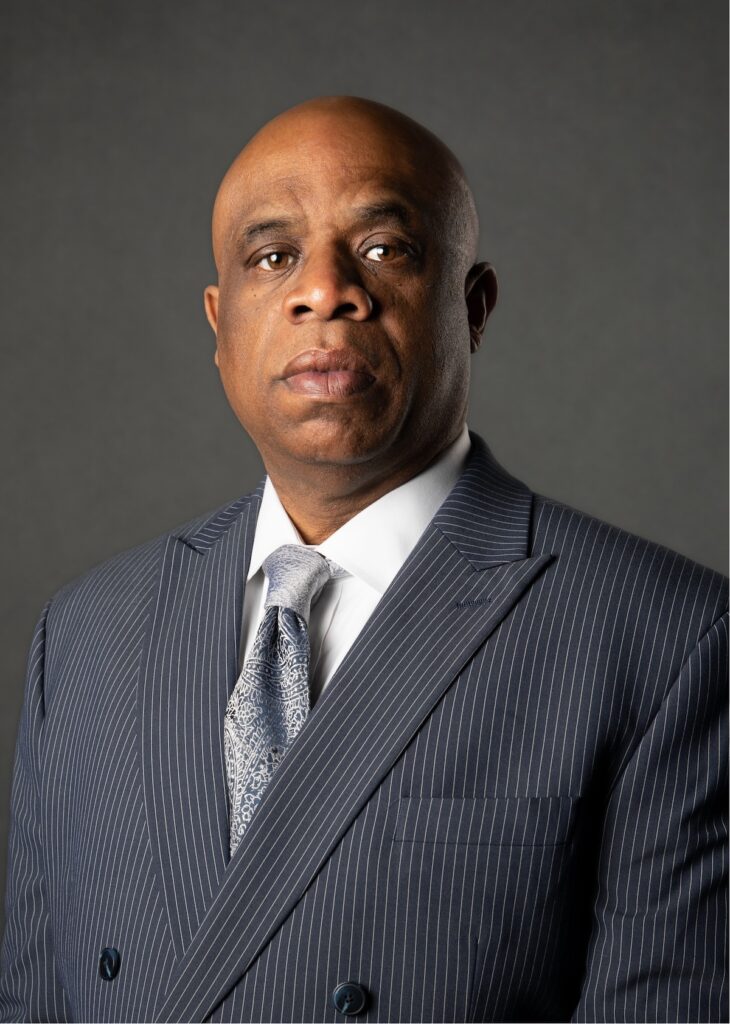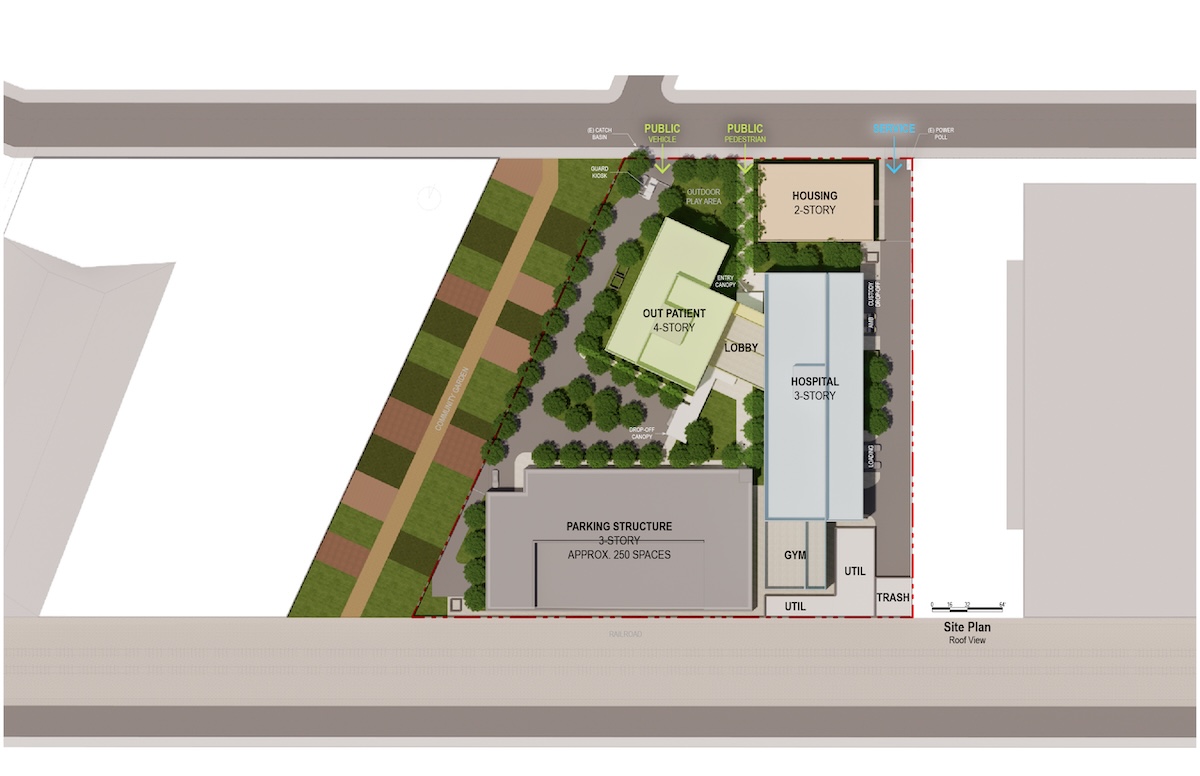In one of the largest investments in new health care facilities in South Los Angeles over the past decade, South Central-based Kedren Community Health Center Inc. is planning to construct a $150 million inpatient children’s psychiatric facility and integrated health and mental health complex on the site of its former community health clinic that borders the Watts neighborhood.
While square footage and other details are being finalized, the preliminary estimate is that complex will comprise 111,000 square feet spread over three buildings to replace an abandoned 42,000-square-foot Kedren community health facility at 710 111th St. that was established in the 1970s.
Funding for the project comes almost entirely from state programs.
This represents the largest recent medical facility investment in South Los Angeles in years, even larger than the September 2017 opening of Kaiser Permanente’s 105,000-square-foot, $90 million medical-office complex across from the Baldwin Hills-Crenshaw Plaza shopping mall. It’s the largest new inpatient facility in the area since the opening in mid-2015 of the 130-bed, $208 million Martin Luther King Community Hospital in Willowbrook.
It’s also the second significant new health care facilities project in the Watts area. Earlier this month, Kaiser opened a 40,000-square foot medical office complex in a 61,000-square-foot building that already houses a Kaiser counseling and learning center.
Last fall, the design-build team of HOK Group Inc. and McCarthy Building Cos. Inc. – both headquartered in St. Louis – was selected for the Kedren project. Groundbreaking is expected this spring; the entire project is expected to be completed by the end of 2026.
“This is an underserved community, especially when it comes to services for children,” said Gregory Polk, Kedren’s new chief executive. “We can bring children to this facility, provide them some guidance and rehabilitate them from both mental illness and trauma.”
“We can bring children to this facility, provide them some guidance and rehabilitate them from both mental illness and trauma.”
Polk, who officially took over as chief executive earlier this month, also stressed the unprecedented nature of combining both mental and physical health services for children at one location.
“I don’t think there’s anything exactly like this in the nation,” he said.
Facility is a long time coming
The plan for an integrated mental and physical health care facility for children and their families started as a vision of Polk’s predecessor, John Griffith, more than 20 years ago.

Outside of major academic research institutions such as UCLA Health, few facilities that integrate mental and physical health care exist in the county.
“We are proud to deliver a holistic and integrated one-stop medical home model for healing and reintegration – a first for California,” said Griffith, who is now Kedren Community Health Center’s president.
Kedren Community Health Center was founded in 1965 by the late child psychiatrist James Jones in response to the Watts civil unrest that occurred a few months earlier. The original location was in Jones’ house.
The site bordering Watts served as Kedren’s headquarters and housed a community health and mental health services clinic for roughly 10 years from the mid-1970s to the mid-1980s. By that time, Kedren had secured federally qualified health center status, entitling it to federal funding and to enhanced reimbursement rates from federal Medicare and Medicaid programs.
In the mid-1980s, Kedren bought another parcel about 5 miles to the north at 4211 South Avalon Blvd. in what’s now called Historic South-Central Los Angeles. On that parcel, Kedren built an inpatient psychiatric hospital that now has 72 beds: 55 for adults and 17 for children. Kedren also moved its clinic and headquarters to that location.
However, Kedren never sold the parcel near Watts, and since the turn of this century the goal has been to turn it into this one-stop location for children’s mental and physical health services.
But it took a long time to secure the funds; that package came together only recently. It includes $91 million from the state’s 2004 Mental Health Services Act, which imposed a tax on millionaires to fund mental health programs, and $57 million from a separate state behavioral health construction fund.
David Ryu, chief strategy and advancement officer for Kedren Community Health, said there may be a capital campaign to raise any additional funds needed for the project.
Gradations of care at new center
The new campus will consist of three main buildings, all focused on providing care to children and their families, plus a parking structure. The first building is slated to be an inpatient children’s psychiatric facility with between 24 and 42 acute and subacute beds, according to Ryu. The square footage and the exact number of beds are still being finalized. The 17 psychiatric beds for children at Kedren’s Avalon facility will be transferred to this new facility.
(Because of state code requirements, Kedren won’t be able to fill those 17 beds at the Avalon facility with new adult psychiatric patients until a major retrofit is completed at that facility, which is not part of this project.)
The second building will be for children’s outpatient services. It will include a crisis-stabilization unit for children experiencing mental health difficulties that do not meet the life-threatening criteria that warrant being committed to an inpatient facility, Ryu said. Patients will be handled on both an urgent care and pre-scheduled appointment basis.
This outpatient building will also provide primary physical health care services for children, again both on a walk-in urgent care basis and for scheduled appointments. However, Ryu said, the building will not house specialists such as cardiologists or gastroenterologists; patients requiring those services will be referred elsewhere in the area.
The third building will provide transitional housing for children experiencing mental difficulties – and their families – for up to 18 months. Ryu said the exact number of housing units is still being finalized.
When it opens, the new facility will fill a crucial role in South Los Angeles, according to members of the design-build team. Few mental health facilities for children exist in South Los Angeles, despite the need.
“The creation of this new campus tackles a vital need for pediatric behavioral health resources in Los Angeles,” said Adaeze Cadet, design principal at HOK’s Los Angeles studio.
“McCarthy is honored to partner with Kedren Health and HOK to deliver the first-ever comprehensive behavioral health facility dedicated to serving the youth of South Los Angeles,” said Grady Ritua, project director for McCarthy.

